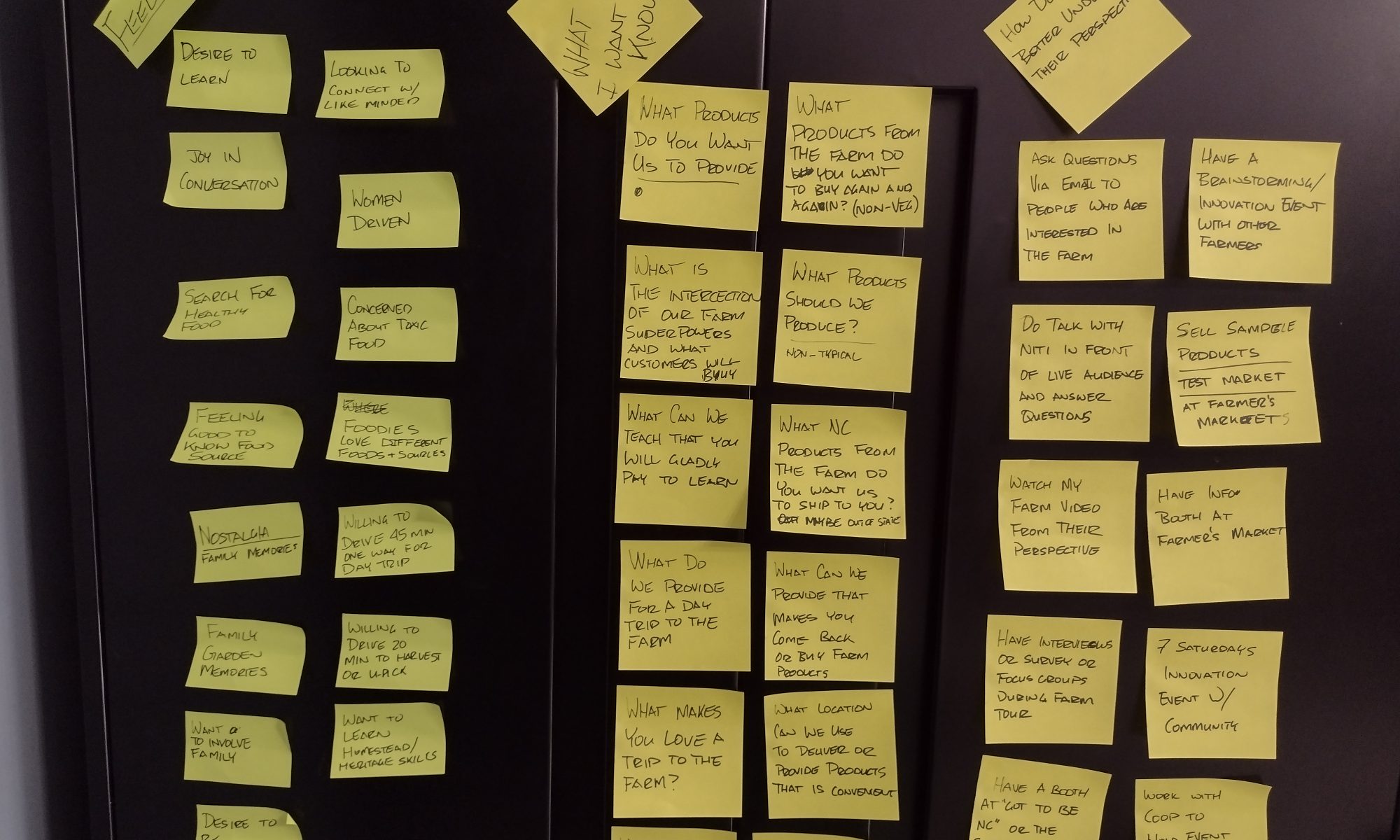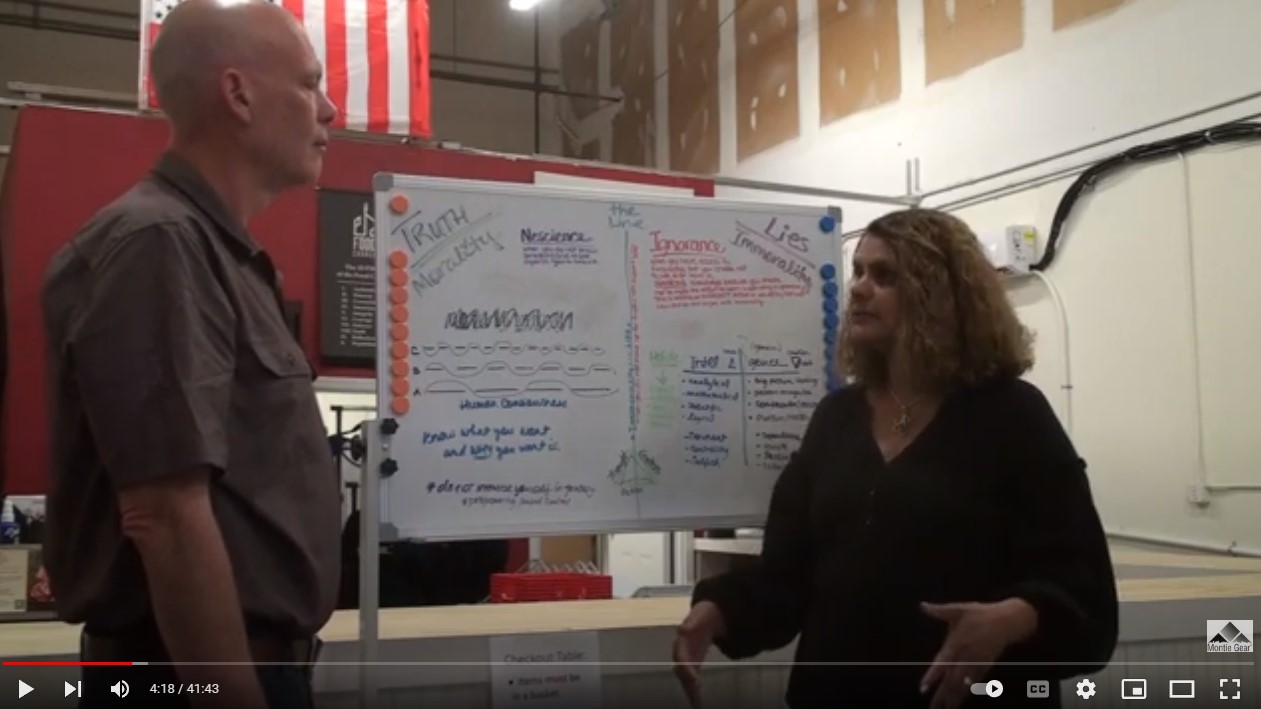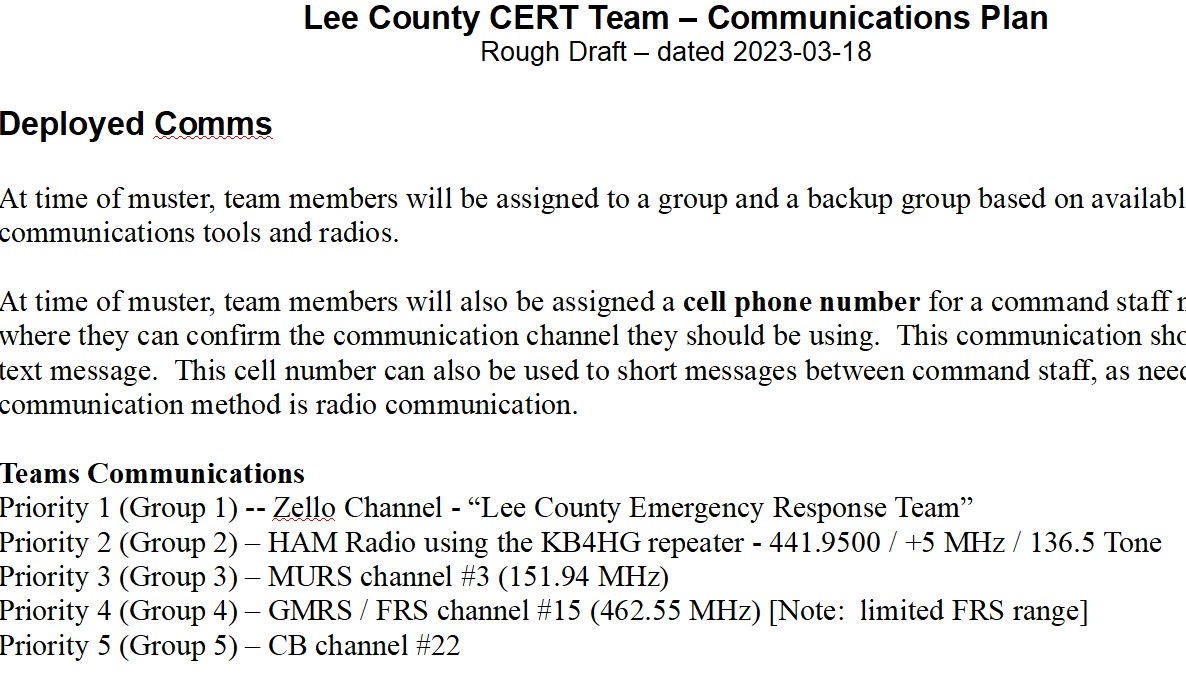What I Learned by Taking the IDEO Insights for Innovation Class

I just finished the Insights for Innnovation Class. This a wonderful class. We concentrated on observing, interviewing and developing customer insights. Walk with me though the podcast as I share what I learned.
State of the Farm and Pictures from This Week
This has been a busy week on the farm. We try to give a semi-annual update that talks about what is going on at the farm in detail. We’ve also been working this week on our potatoes, developing the back field and planting a few ornamental plants.
I had a few days on the farm this week to ponder the future plans for the farm. I’m taking a class with IDEO on Insights for Innovation. The class project revolves around the farm so it was good having time to ponder the future plans for the farm while working in the field.
Here are some pictures from this week
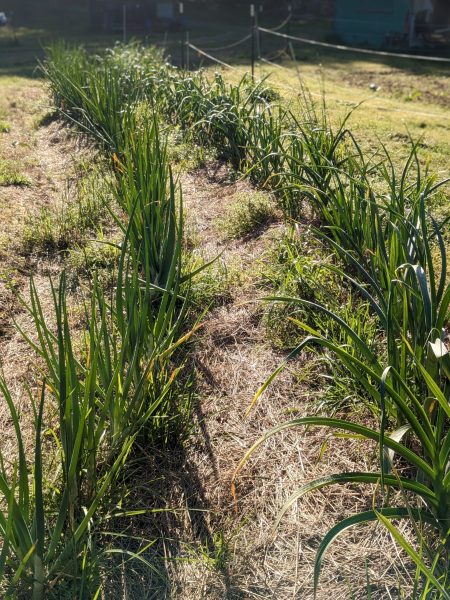
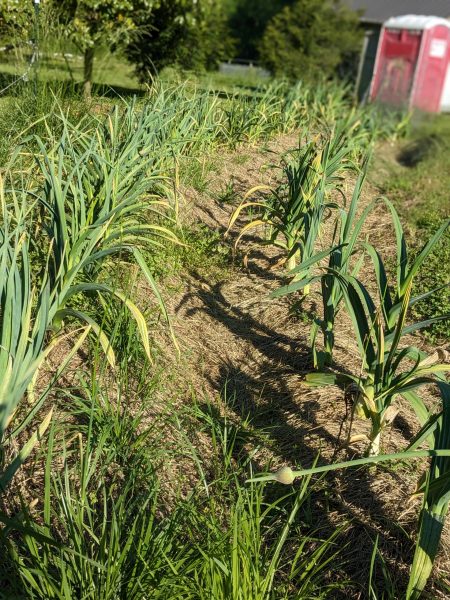


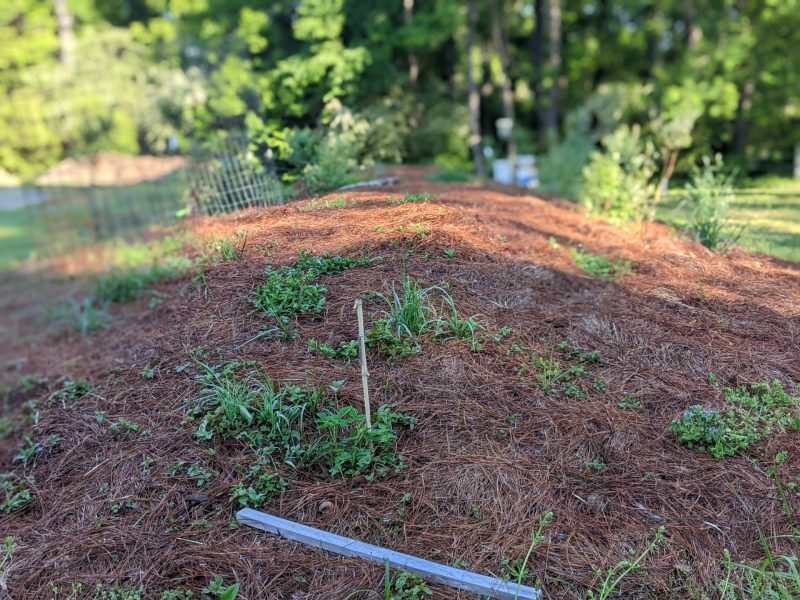









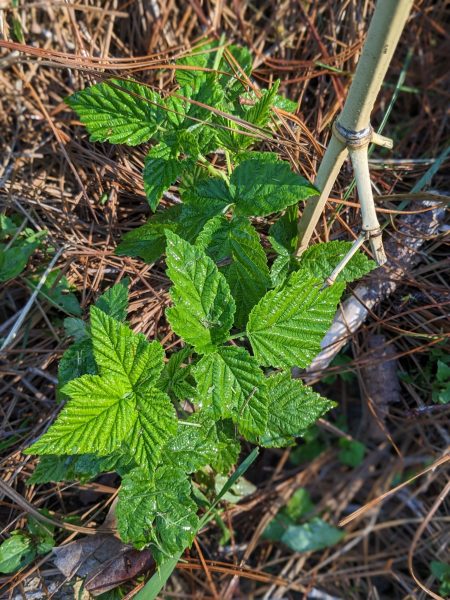
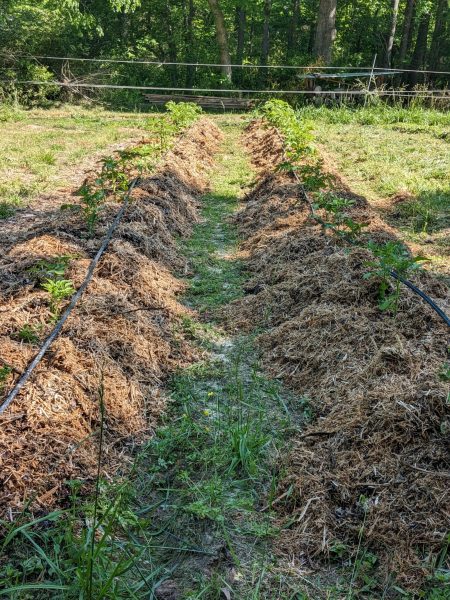

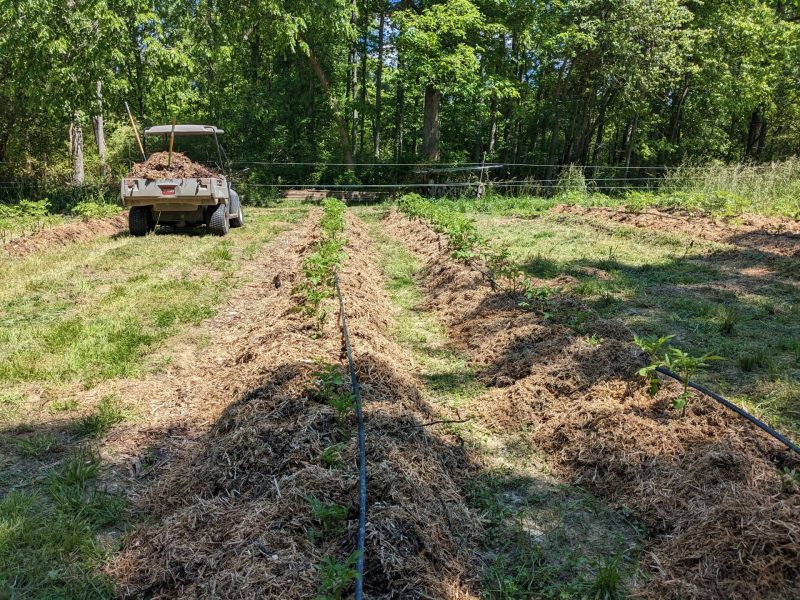
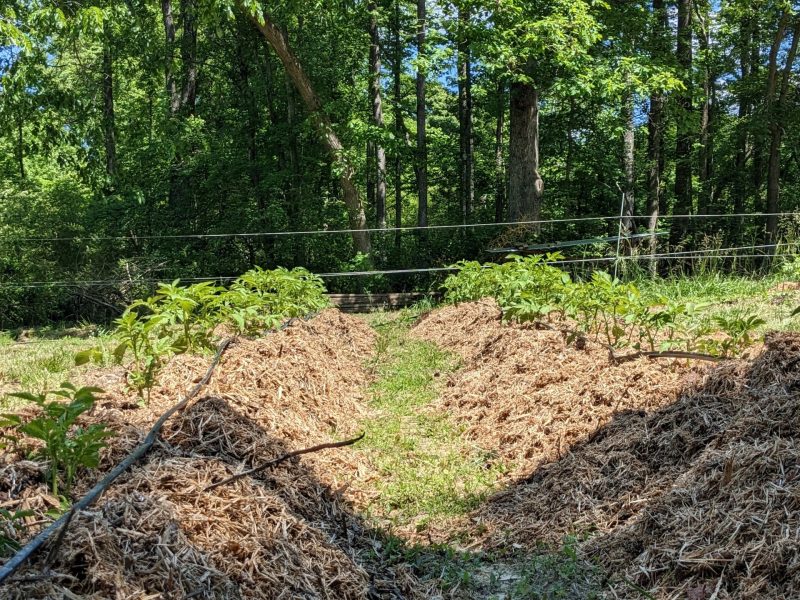
Interview with Niti Bali – Food Church founder
I’m taking a class called “Insights for Innovation” with IDEO. Part of that class is doing interviews for developing empathy and better understanding customers. Niti was the perfect person to interview to better understand the farm-to-fork community. I learned a lot in the interview and hope you do too.
Rough Draft – CERT Emergency Communications Plan
The work on the emergency communications plan is moving forward. Our plan covers two main contingencies:
- team is deployed to an emergency site
- team is not deployed but there is an emergency
One of our team goals is put ourselves in a position where we can help the broader community during a wider emergency, such as a grid down situation after a hurricane or power station sabotage (like the next county over went through in 2022).
This plan is a step towards achieving those goals. Later phases of plan development should help address the communications divide between the CERT team and the greater community. These later phases should also incorporate some of the great ideas that were generated in the brainstorming / brainwriting work.
The rough draft of the plan is below. Comments and suggestions are welcome.
Lee County CERT Team – Communications Plan
Rough Draft – dated 2023-03-18
Deployed Comms
At time of muster, team members will be assigned to a group and a backup group based on available communications tools and radios.
At time of muster, team members will also be assigned a cell phone number for a command staff member, where they can confirm the communication channel they should be using. This communication should occur via text message. This cell number can also be used to short messages between command staff, as needed. Primary communication method is radio communication.
Teams Communications
Priority 1 (Group 1) — Zello Channel – “Lee County Emergency Response Team”
Priority 2 (Group 2) – HAM Radio using the KB4HG repeater – 441.9500 / +5 MHz / 136.5 Tone
Priority 3 (Group 3) – MURS channel #3 (151.94 MHz)
Priority 4 (Group 4) – GMRS / FRS channel #15 (462.55 MHz) [Note: limited FRS range]
Priority 5 (Group 5) – CB channel #22
(Backup) Priority 1 – No backup, go to other group
(Backup) Priority 2 (Group 2) – HAM Radio using the NC4ML – 147.240 / +5 MHz / 91.5
(Backup) Priority 3 (Group 3) – MURS channel #5 (154.60 MHz)
(Backup) Priority 4 (Group 4) – GMRS / FRS channel #17 – 462.60 MHz [Note: limited FRS range]
(Backup) Priority 5 (Group 5) – CB channel #24
Note: Group 2 – If both HAM repeaters are not available, switch to Simplex 146.58 FM
Command Communications
Priority 1 (Group C1) — Zello Channel – “Lee County Emergency Response Team – Command”
Priority 2 (Group C2) – HAM Radio using Simplex 144.400
Priority 3 (Group C3) – MURS channel #2 (151.88 MHz)
Priority 4 (Group C4) – GMRS / FRS channel #19 (462.65 MHz) [Note: limited FRS range]
Priority 5 (Group C5) – CB channel #21
(Backup) Priority 1 – Use command text message number to ask which alternate group to use
(Backup) Priority 2 (Group 2) – HAM Radio using Simplex 144.800
(Backup) Priority 3 (Group 3) – MURS channel #4 (154.57 MHz)
(Backup) Priority 4 (Group 4) – GMRS / FRS channel #21 (462.70 MHz_ [Note: limited FRS range]
(Backup) Priority 5 (Group 5) – CB channel #23
Non-deployed Comms [used during emergency situation where CERT team isn’t deployed]
Use the following communications channels on the schedule below with a wilderness protocol (seeking to minimize power use in case the grid is down):
- text message to designated contact
- Group 1, Group 2, Group 3 (Carolina Trace local area), Group C1, Group C2
- other groups activated in an extended emergency to provide greater footprint in community
Note: number of groups is minimized to reduce the amount of time the command staff has to communicate with team members.
| Purpose | Group | Day | Time |
| Orientation | Email or text message from command to start comm protocol, or event / emergency to trigger start, includes emergency text message contact number | ||
| Daily Check-In (first 3 days only) | Group 1 – Zello | Daily | 07:00 PM |
| Group 2 – HAM Radio | Daily | 07:15 PM | |
| Group 3 – MURS (local to Carolina Trace area) | Daily | 07:30 PM | |
| Group C1 – Zello | Daily | 06:15 PM | |
| Group C2 – HAM Radio | Daily | 06:30 PM | |
| Weekly Check-In | Group 1 – Zello | Sunday | 07:00 PM |
| Group 2 – HAM Radio | Sunday | 07:30 PM | |
| Group 3 – MURS (local to Carolina Trace area) | Sunday | 08:00 PM | |
| Group C1 – Zello | Sunday | 06:00 PM | |
| Group C2 – HAM Radio | Sunday | 06:30 PM | |
| Daily Monitoring (4th day and beyond) | Group 1 – Zello | Daily, except Sunday | 07:00 PM |
| Group 2 – HAM Radio | Daily, except Sunday | 07:10 PM | |
| Group 3 – MURS (local to Carolina Trace area) | Daily, except Sunday | 07:20 PM | |
| Group 4 – GMRS | Daily, except Sunday | 07:30 PM | |
| Group 5 – CB | Daily, except Sunday | 07:40 PM | |
| Group C1 – Zello | Daily, except Sunday | 07:50 PM | |
| Group C2 – HAM Radio | Daily, except Sunday | 08:00 PM | |
| Anytime during emergency | Text messages to command cell # – when radio or Zello comms aren’t available | Any day | Any time |
Next Step – Getting Ready for Brainwriting – CERT Emergency Communications Plan
The next step in developing our CERT Emergency Communications plan is the brainwriting challenge for team members.
Challenge Question
How do we create a workable plan that allows the CERT team to communicate within the team, with local authorities and the community in an emergency
Specific Questions
- How do we communicate with all CERT members (Ham and non-Ham) during a deployment?
- If we have an issue with one communication path how do we let everyone know that we need to switch to another method (maybe another channel, repeater, app or method all together)?
- How does the CERT team communicate with the community during a grid down situation?
- How does the CERT team communicate between members (HAM and non-HAM) during a grid down situation?
- What would a one way communication / “beacon” do and how could it be accessible by hams, non-hams and the general community in an emergency?
Buckets
Deployed Communication
Communication between CERT and the community
Ham Comms
Non-Ham Comms
Grid Down
Beacon / One Way Comms
Digital Comms



